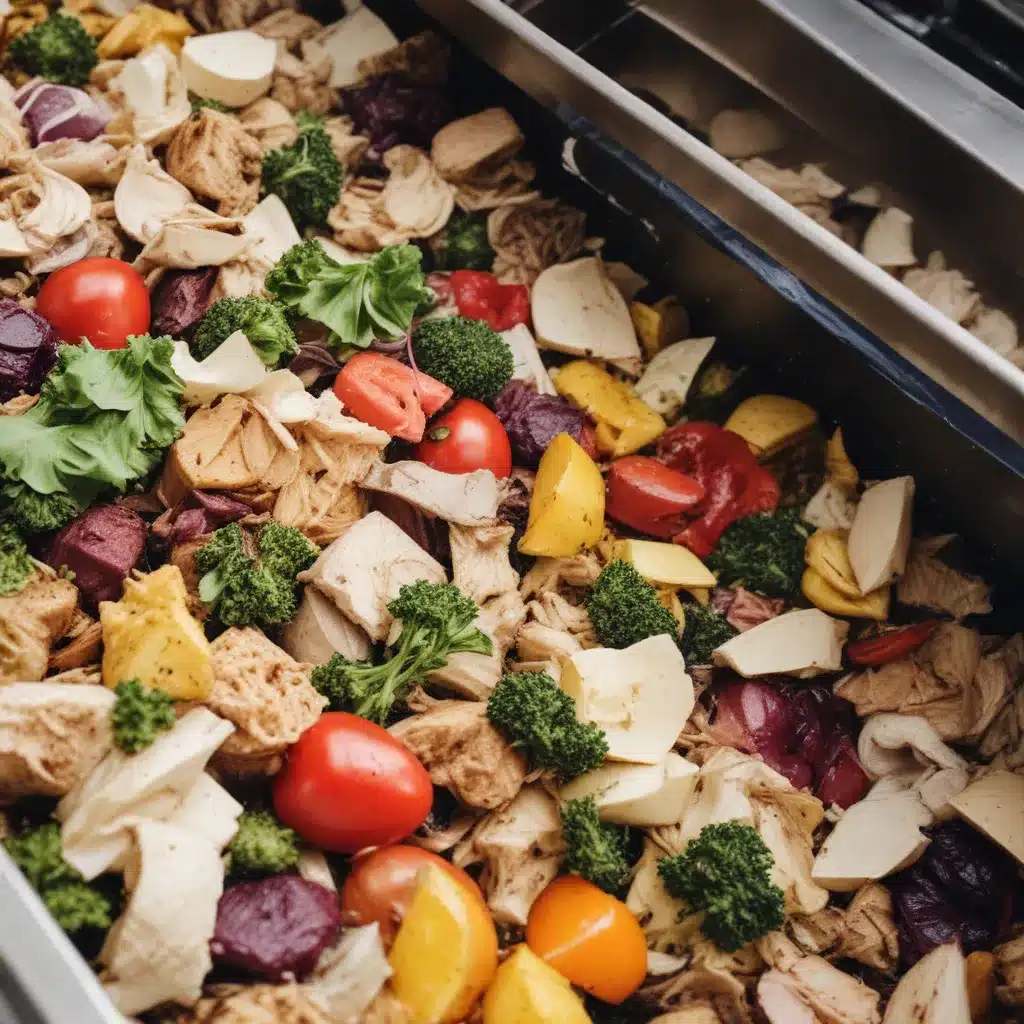
The Global Food Waste Crisis and Its Environmental Toll
Food waste is a pervasive global issue with significant economic, social, and environmental ramifications. Estimates suggest that a staggering one-third of all food produced worldwide is ultimately lost or wasted, amounting to over 1.3 billion tons annually. This alarming statistic not only represents a squandered opportunity to nourish the world’s growing population but also contributes to the environmental degradation we face.
The environmental toll of food waste is immense. When food is discarded, all the resources used in its production – land, water, energy, and labor – are effectively wasted as well. This wastage directly contributes to the greenhouse gas emissions driving climate change, with food waste accounting for approximately 8-10% of global emissions. Furthermore, the decomposition of organic matter in landfills generates methane, a potent greenhouse gas with an even greater warming potential than carbon dioxide.
Embracing the Circular Economy: Innovative Solutions for Culinary Waste Reduction
To address the mounting challenge of food waste, a multifaceted approach is required – one that leverages the principles of the circular economy. The circular economy model, in contrast to the traditional linear “take-make-waste” approach, emphasizes the importance of keeping resources in use for as long as possible, extracting maximum value from them, and then recovering and regenerating products and materials at the end of their service life.
In the culinary realm, implementing circular economy strategies can unlock significant opportunities to minimize waste and environmental impact. Here are some innovative solutions that culinary professionals can adopt:
Optimizing Supply Chain Logistics with Artificial Intelligence
Artificial intelligence (AI) technologies are emerging as powerful tools in the fight against food waste. By leveraging AI-powered predictive analytics, food producers, distributors, and retailers can better forecast demand, optimize inventory management, and streamline supply chain logistics. This can prevent the over-production or over-ordering of ingredients, ultimately reducing the amount of food destined for the landfill.
According to a recent study, AI-driven solutions can help monitor and analyze data from various sources, including weather patterns, consumer purchasing habits, and historical sales trends. This information can then be used to fine-tune production schedules, adjust ordering processes, and redirect surplus food to where it is needed most, minimizing waste and maximizing resource efficiency.
Embracing Food Upcycling and Waste-to-Value Initiatives
In addition to optimizing supply chain logistics, culinary professionals can also explore innovative ways to repurpose food waste and byproducts, a concept known as food upcycling. By transforming discarded ingredients into new, valuable products, the circular economy principle of “waste as a resource” can be put into practice.
One promising example is the use of insect-based proteins as a sustainable alternative to traditional livestock. As highlighted in a recent review, edible insects require significantly less land, water, and feed compared to conventional animal-based proteins, while also emitting lower levels of greenhouse gases. Moreover, insect farming can help recycle valuable nutrients and reduce overall waste.
Culinary professionals can collaborate with food technology companies and research institutes to develop novel processing techniques that enhance the palatability and marketability of insect-based products, ultimately promoting greater consumer acceptance and adoption.
Fostering Community Partnerships and Food Redistribution
Another crucial aspect of reducing culinary waste is establishing strong community partnerships and supporting food redistribution initiatives. By collaborating with local food banks, shelters, and charitable organizations, culinary professionals can ensure that surplus or unsold food items are redirected to those in need, rather than ending up in landfills.
According to the ReFED report, food donation programs can divert significant volumes of edible food from waste streams, providing nourishment to food-insecure individuals and families while also reducing the environmental impact associated with food disposal.
Culinary professionals can further enhance these efforts by educating their staff on proper food storage, handling, and donation protocols, ensuring that food safety standards are maintained throughout the redistribution process.
Cultivating a Culture of Waste Consciousness
Ultimately, the path to sustainable culinary practices and waste reduction requires a holistic approach that engages all stakeholders, from producers and suppliers to chefs and consumers. By cultivating a culture of waste consciousness, culinary professionals can inspire positive change and empower their teams to become active champions of environmental stewardship.
This starts with implementing comprehensive training programs that equip kitchen staff with the knowledge and skills to minimize waste throughout the food preparation and service process. From proper inventory management and ingredient utilization to creative recipe development and menu planning, every member of the culinary team can play a role in reducing the environmental footprint of their operations.
Beyond the kitchen, culinary professionals can also leverage their influence to educate and inspire their customers. By highlighting the importance of food waste reduction, promoting the use of sustainable and upcycled ingredients, and encouraging responsible consumption habits, chefs can empower their patrons to make more eco-conscious choices.
Conclusion: Towards a Sustainable Culinary Future
As culinary professionals, we have a unique opportunity and responsibility to lead the charge in addressing the global food waste crisis. By embracing the principles of the circular economy, leveraging innovative technologies, and fostering a culture of waste consciousness, we can drive meaningful change and ensure a more sustainable future for our industry and our planet.
Through the collective efforts of culinary experts, food technology innovators, and engaged consumers, we can unlock the science of culinary waste reduction and minimize the environmental impact of our culinary practices. By championing these transformative strategies, we can inspire a culinary revolution that nourishes both people and the planet.


